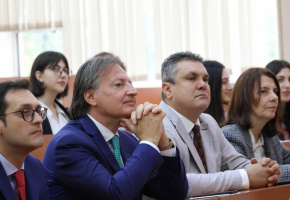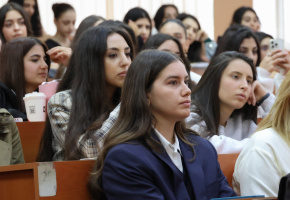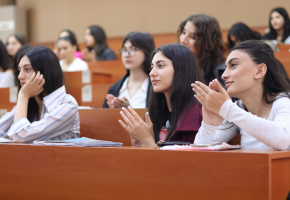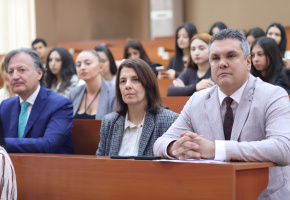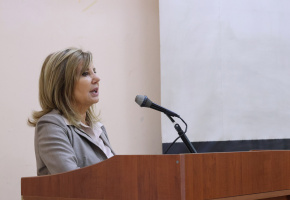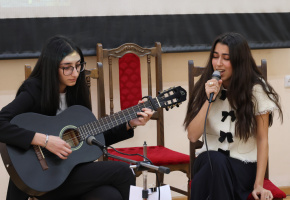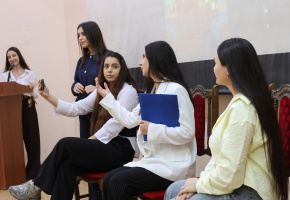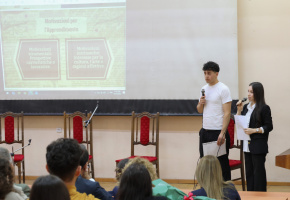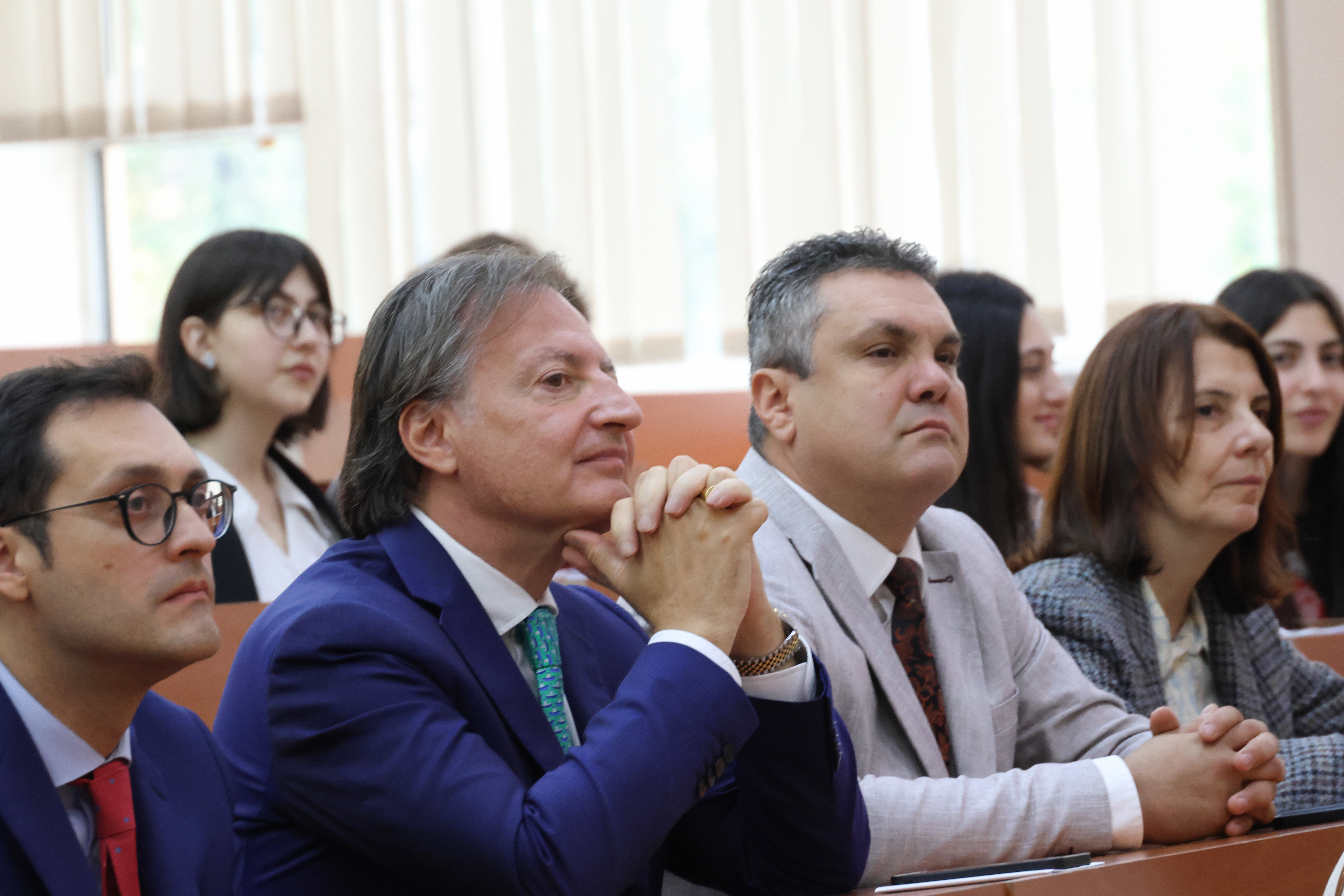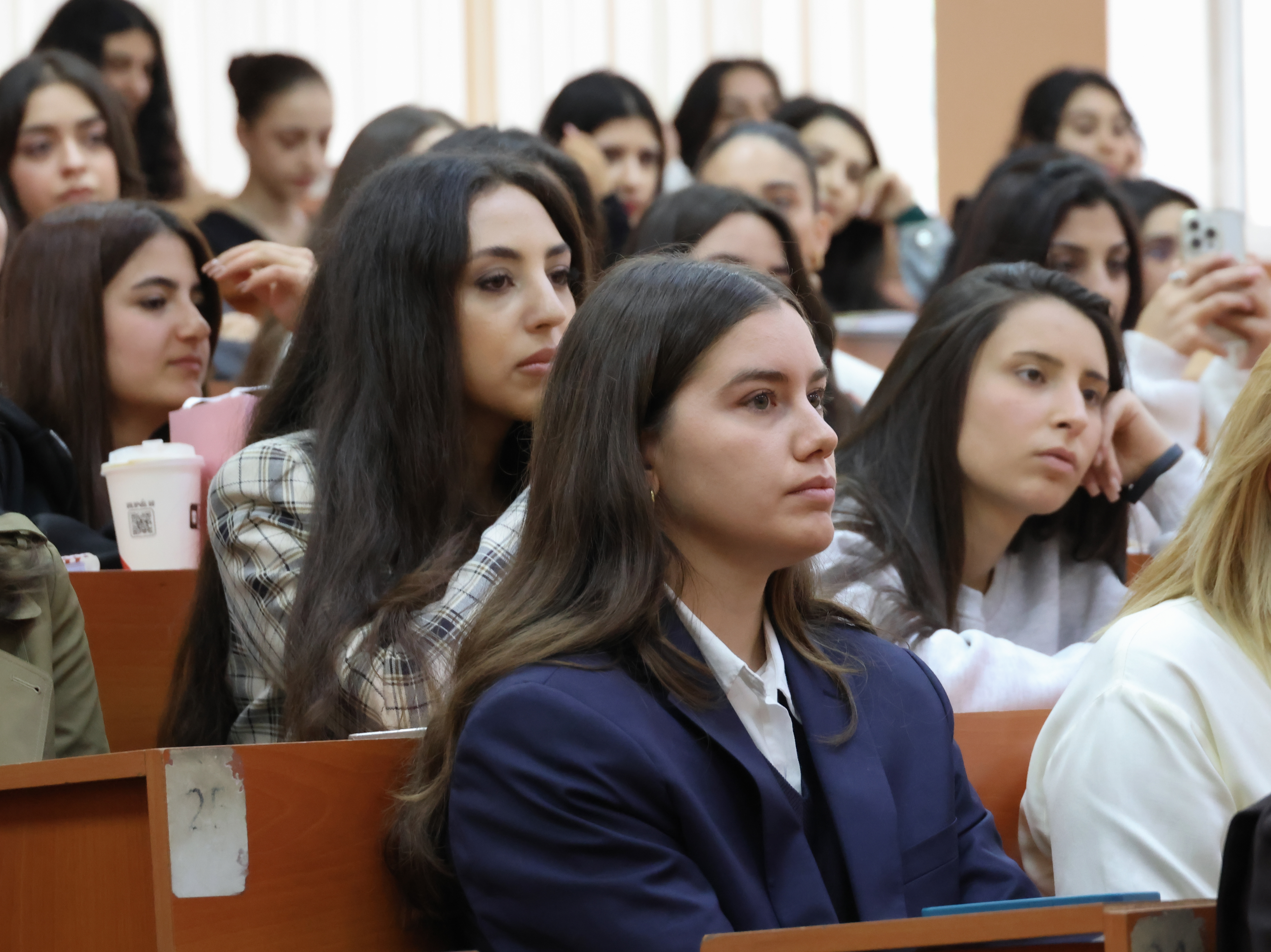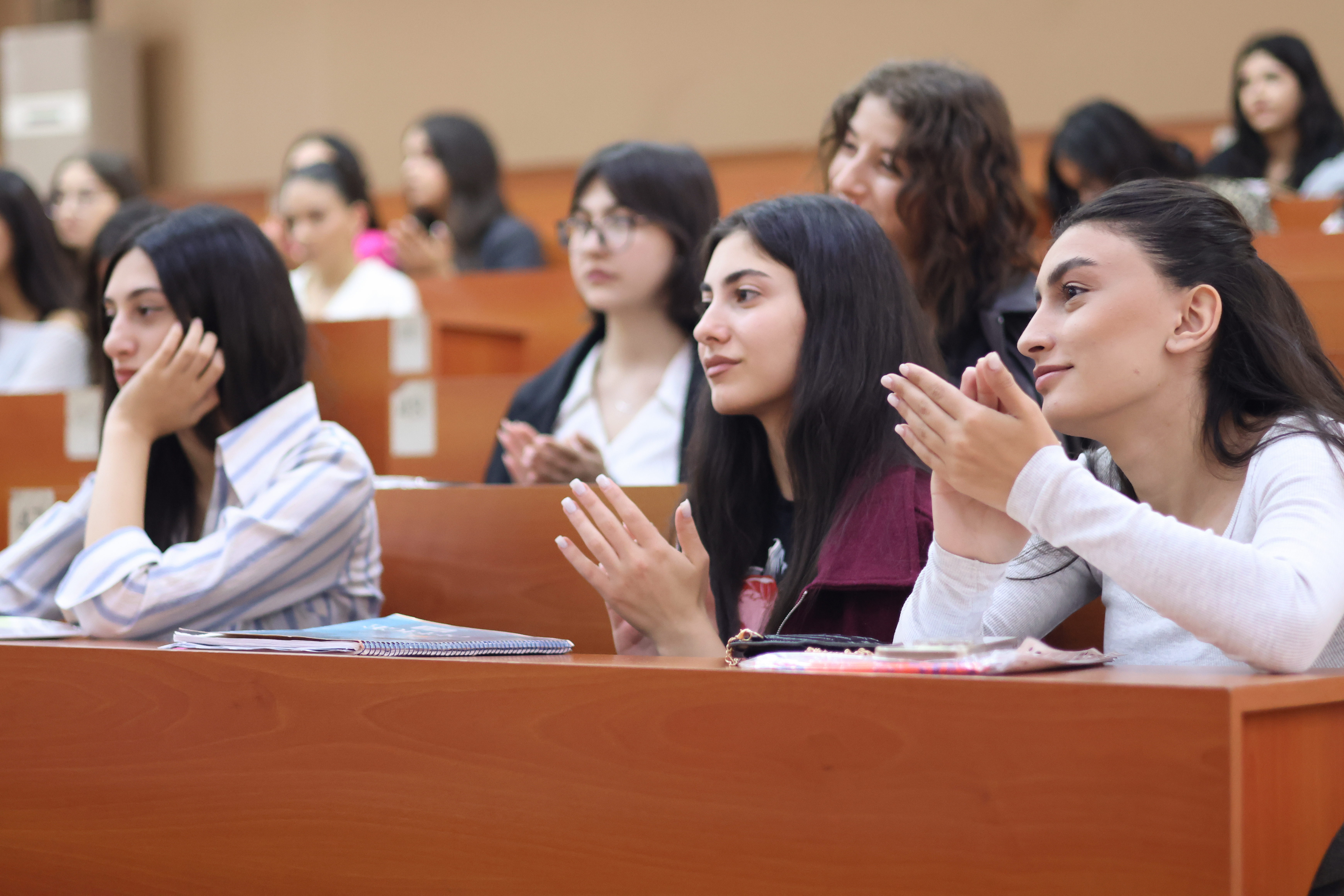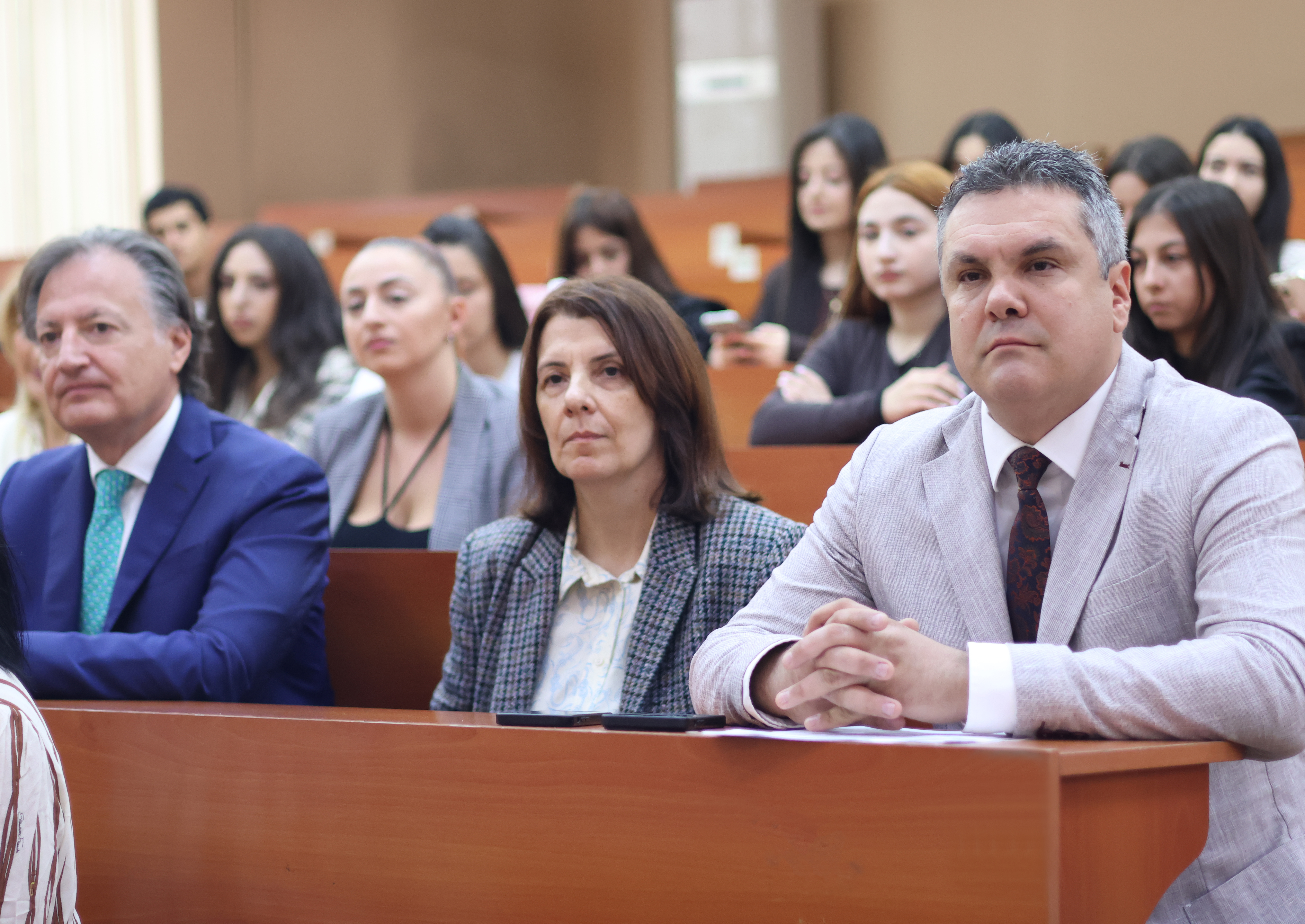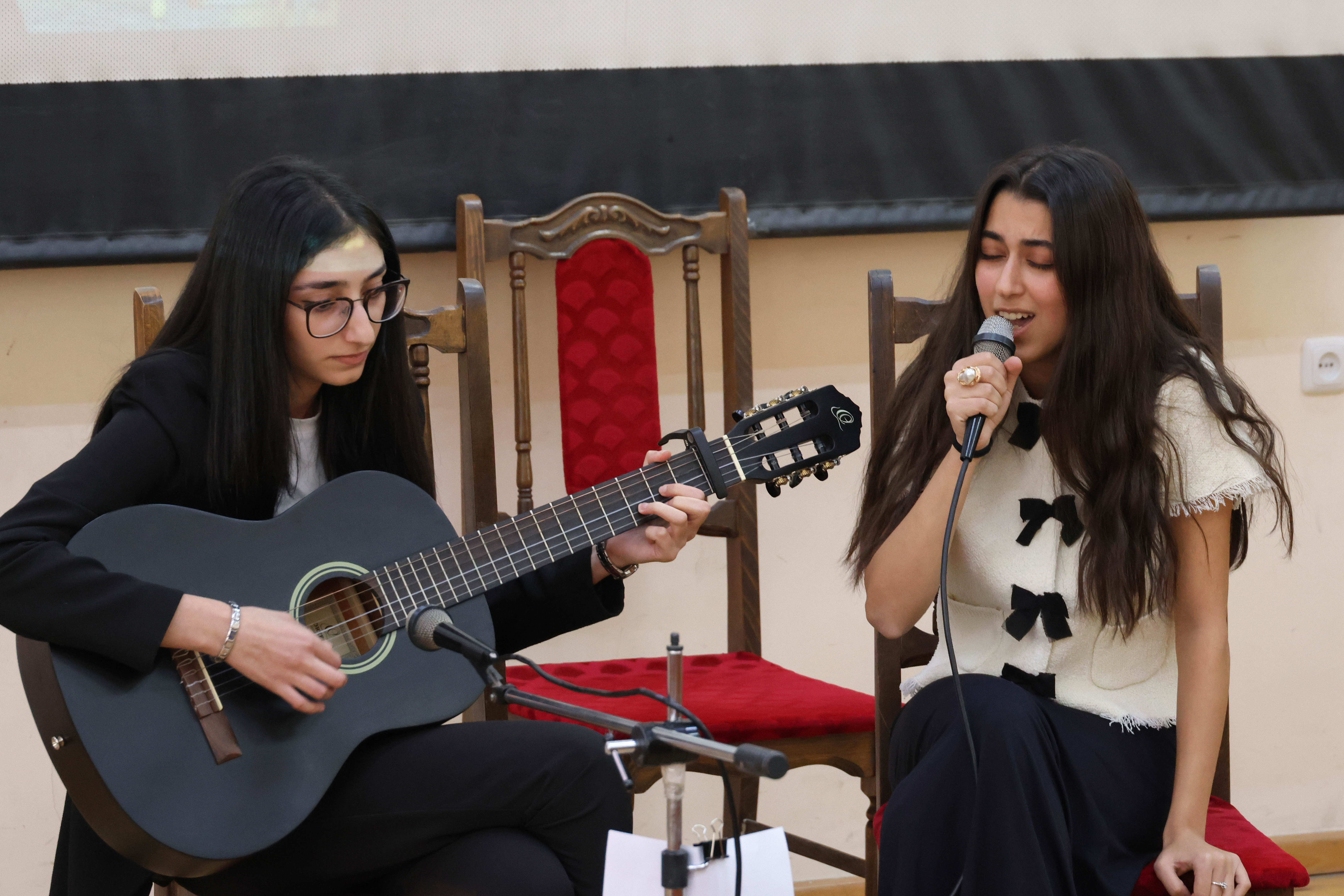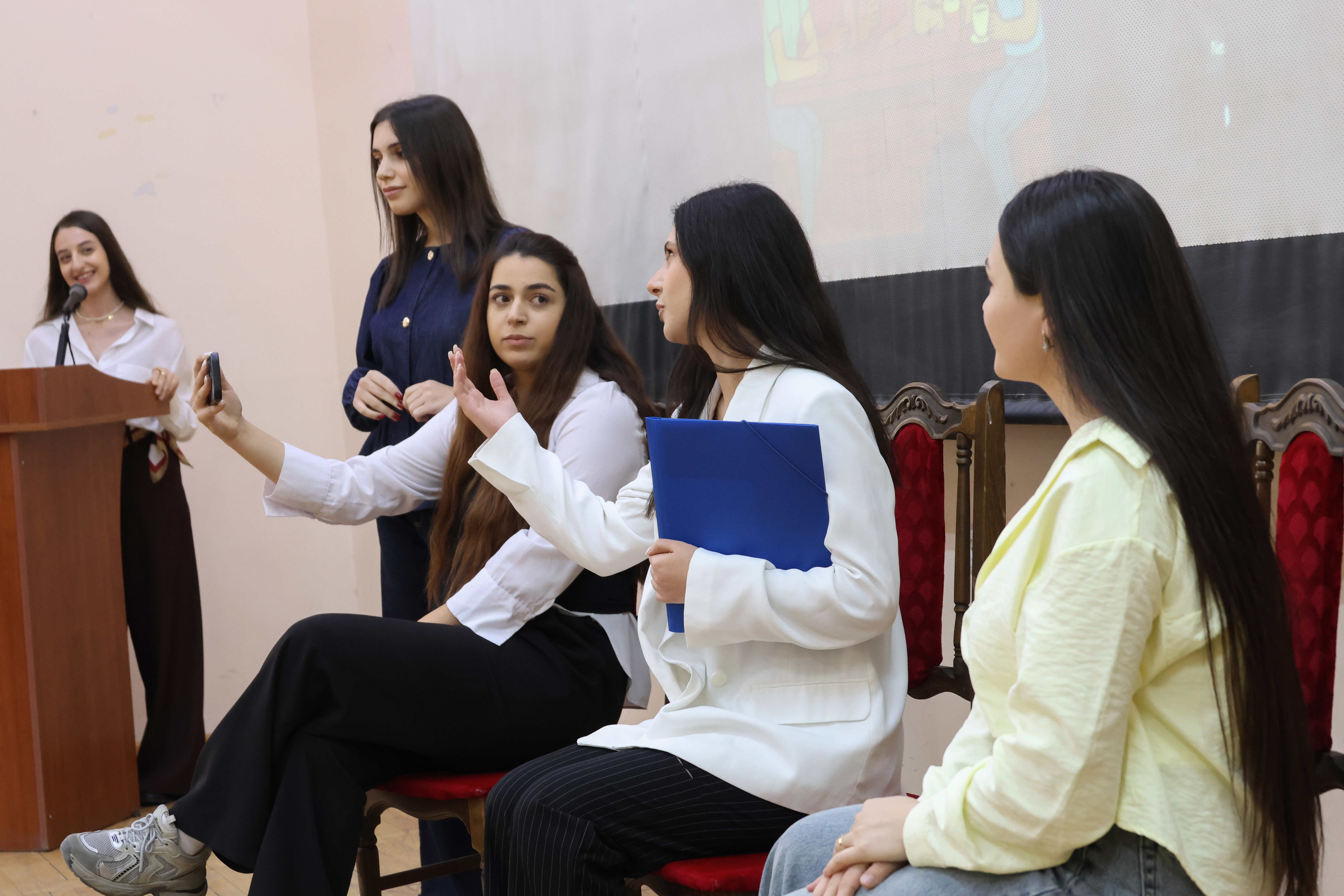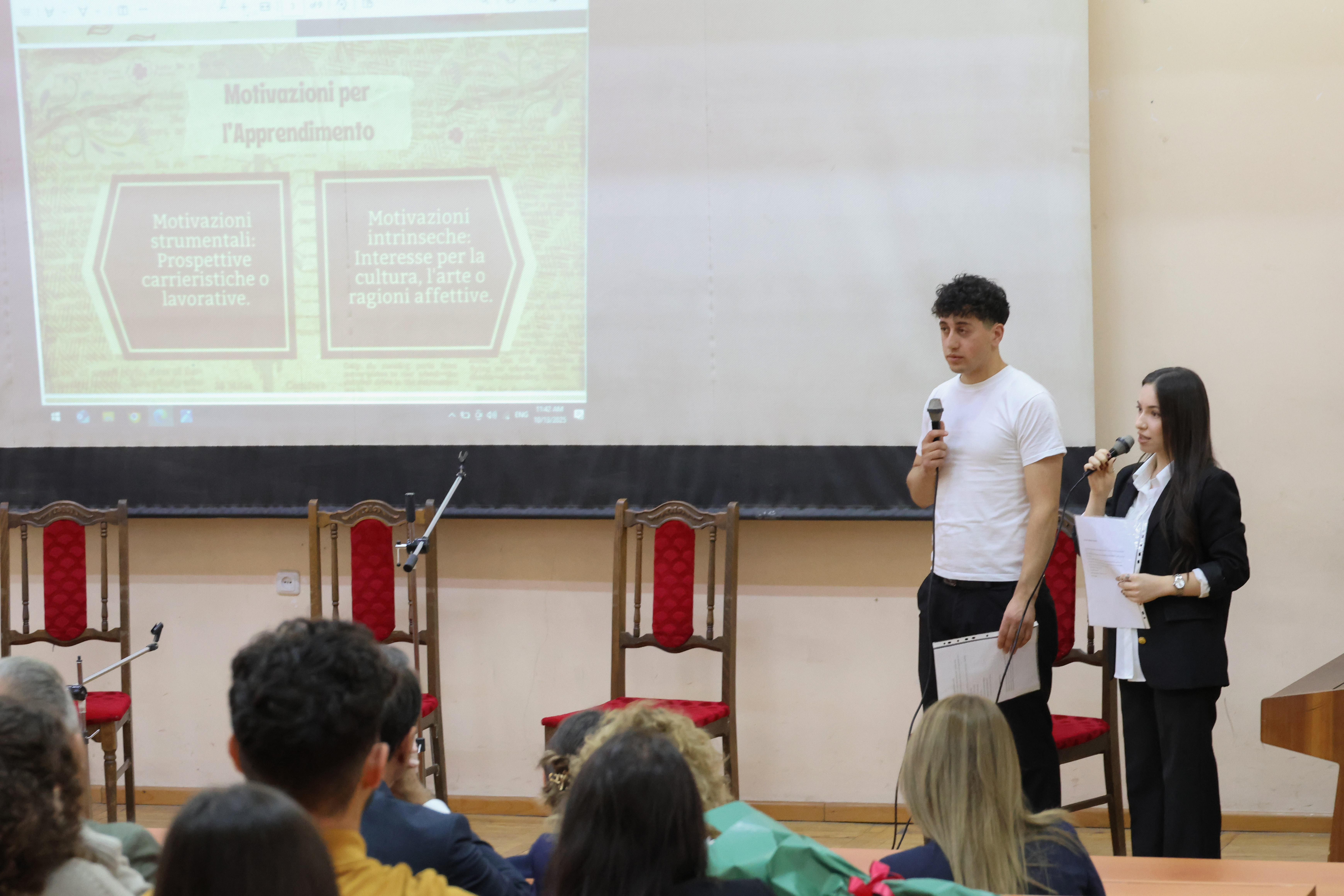October 15, 2025 | 13:03
International cooperation
Events
Culture
This year’s Italian Language Week opens under title "Italian-Speaking World: A Language Without Borders"
The official opening ceremony of the Italian Language Week took place at Yerevan State University under the title "Italian-Speaking World: A Language Without Borders." Each year, the third week of October is dedicated worldwide to the Italian language, aiming to promote both the language and Italian culture.
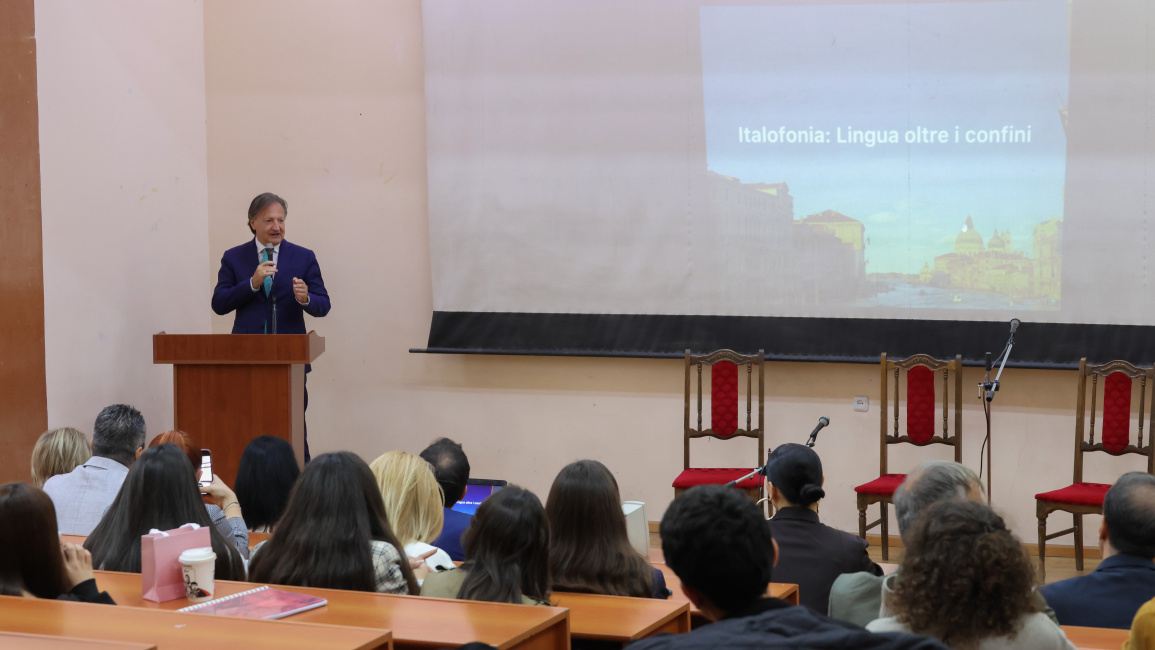
The Italian Language Week is celebrated annually with a specific thematic focus. This year’s theme — "Italian-Speaking World: A Language Without Borders" — offers an opportunity to highlight the linguistic, cultural, and historical aspects of the Italian language, as well as its creative power in all its diverse expressions.
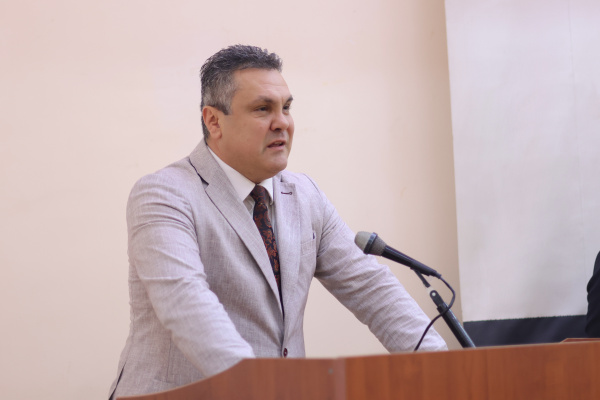
The Dean of the Faculty of European Languages and Communication, Gevorg Barseghyan, noted that although Italy is not a large country geographically, it enjoys a reputation that makes the Italian language impossible to ignore: "Italy is a trendsetter — whether in fashion, art, or sports. I believe you will agree with me that whatever is fashionable, beautiful, interesting, and unique is often considered Italian. I am very glad that Armenian-Italian relations are at a high level, which is not surprising, as Armenians and Italians share many similarities."
Dean Barseghyan also emphasized that students at the faculty study Italian with great enthusiasm, and the instruction provided ensures a high level of language proficiency. He underlined the importance of long-standing and close cooperation with the Embassy of Italy in Armenia in the context of teaching the Italian language and promoting Italian culture.
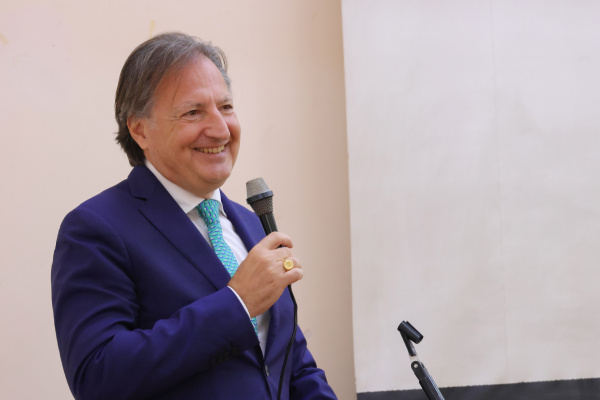
Alessandro Ferranti, Ambassador Extraordinary and Plenipotentiary of Italy to Armenia, expressed his delight at the strong presence of students at the event.
"This attests to the growing interest in the Italian language in Armenia. Italian embodies the values of humanism — it is both simple and rich, expressing a complete set of universal ideas. Throughout history, and still today, Italian has been a driving force for creativity, art, culture, music, and literature," the ambassador said, stressing that Italian, though ancient, is a dynamic and ever-evolving language.
He went on to note that following World War II, Italy underwent significant economic and industrial development, which also boosted the advancement of the language: "Italian is spoken in many countries around the world. Let us not forget that over the past two centuries, many Italians emigrated, yet managed to preserve their identity through the language and culture."
Ambassador Ferranti highlighted Italy’s global recognition for its millennia-old history, cultural heritage, and traditions. He noted that by mastering the Italian language, students not only broaden their intellectual horizons but also increase their opportunities in the modern global job market.
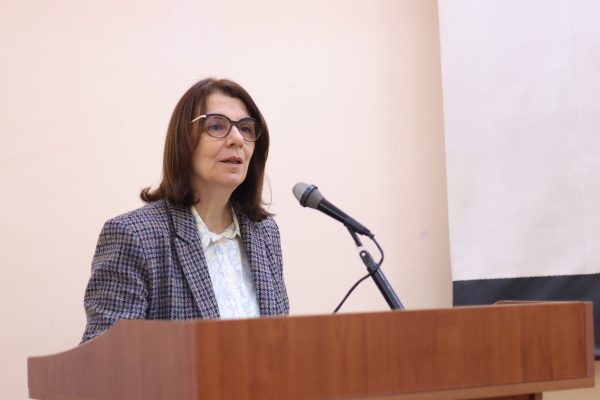
The Head of the Chair of Romance Philology at YSU, Hasmik Baghdasaryan, emphasized that Italian holds a special place among the languages taught at the university: "The teaching of Italian at YSU began back in the 1960s, and over the decades, a rich tradition of teaching has been established. Given the centuries-old friendship between our peoples, I want to specifically stress that this language holds historical and cultural value for us. We are constantly working to improve our Italian language programs, in response to the dynamic changes occurring in our reality."
Hasmik Baghdasaryan also noted that YSU currently offers the "English, Italian, and Communication" bachelor's program — a modern, interdisciplinary, and competitive academic program fully aligned with labor market demands.
During the event, students spoke about the history and prospects of Italian language instruction at YSU, performed a short theatrical piece, recited works by Italian poets, and presented musical performances.
As part of the Italian Language Week, a lecture titled "Italian Studies Beyond the Borders of History, Languages, and Contemporary Musical Culture" will be delivered by Dr. Borbala Samu, a lecturer at the University for Foreigners in Perugia. In addition, a teacher training session will be organized, led by Dr. Graziano Seraggiotto and Dr. Camilla Spaliviero from Ca’ Foscari University of Venice.
Recently the Italian Ministry of Foreign Affairs and the Embassy of Italy in Armenia presented around 40 specialized books on Italian language instruction to YSU Chair of Romance Philology.
A significant contribution to the organization of Italian Language Week has also been made by Ornella Cirillo — a lecturer seconded by the Italian Ministry of Foreign Affairs — who has been teaching at YSU for the second consecutive year.
